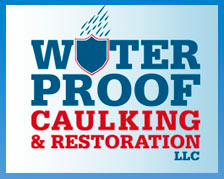Commercial masonry makes use of a wide range of materials, since the project scope is often large either in footprint or in terms of complexity to meet client needs. However, when it comes to the primary material used to construct commercial buildings, contractors will typically choose one of two potential masonry units. Here’s what you need to know about commercial masonry units, what options are available to you and how to make the right choice for your project.
What Is a Masonry Unit?
A masonry unit is an industry way to refer to the building materials that make up the primary structural component of the commercial construction. You will need to select which masonry unit you would like to use for your project before the task begins so that it can be used to build the structure later, once it has been ordered.
Most commercial structures will be composed of a single type of masonry unit, but occasionally, client needs will dictate that multiple types be used for the same project. Typically, any mixing is done out of the public view so that the building remains aesthetically pleasing while benefiting from whatever advantages the mixed units provide, such as improved stability. There are two primary masonry units to choose from: CMU and clay.
CMU
CMU stands for concrete masonry units. In other words, CMUs can be thought of as concrete bricks or blocks. One of their primary advantages is that they can be extruded into shapes that suit a project, rather than being confined only to predetermined brick sizes and shapes. This means that building with concrete masonry units is often faster than other alternatives because the overall units themselves are often larger than a standard brick. Each CMU placed thus takes up more space and brings the project closer to completion.
Another advantage of CMUs is their adaptability for reinforcement. They can be pressed with a differing number of cores or gaps inside them, into which steel bars can be inserted and grouted in. This adds structural integrity and is why CMUs are often used for areas that require heavy load bearing, like walls and interior partitions.
Clay
The other common type of commercial masonry unit is the clay brick. While the clay can also be extruded to certain sizes, most bricks will be roughly the same size and shape, meaning that clay does not have as much adaptability when it comes to sizing as CMUs do. However, in exchange, clay can come in a variety of colors and textures, contributing to the aesthetics of the project.
Clay masonry units come in grades, and most buildings will want to consider grade SW (severe weathering). This robust clay stands up well to thawing and freezing without cracks. If you are not building in an area where such an issue is a concern, MW (moderate weathering) units may suffice. NW (negligible weathering) should only be used indoors where the climate is controlled.
Other Niche Commercial Masonry Units
While concrete and clay masonry units are the most common, there are other types available for niche uses. These include cast stone and calcium silicate. Calcium silicate is a type of decorative lime material and is used for visually pleasing, colorful bricks or intricate edge work and other ornamental adornments.
Cast stone is a material made of real and unevenly shaped stone slabs. It may contribute a unique visual element to a building due to its rugged and inconsistent shapes, but it is heavy, expensive and more difficult to install than manufactured masonry units. Despite this, it can be the right choice for certain projects in the hands of a professional mason.
Cast stone can be shaped into consistent blocks to avoid the hassle of uneven edges, but these stones are also costly. In exchange, they tolerate weather better than natural stone and are overall stronger than a similarly sized piece of concrete. Unsealed cast stone will begin to develop a patina, but sealed stone can last for more than 10 years without the need for maintenance.
Trust the Pros to Help You Select the Ideal Materials for Your Goals
If you are still in the planning stages of your commercial masonry project, it is critical that you carefully consider which masonry units you will use to construct your structure or make repairs. The experts at Waterproof Caulking & Restoration can help you to understand the advantages and disadvantages of each and prepare you for the construction and repair processes that you can expect. Reach out to learn more or to schedule an appointment to get started.
